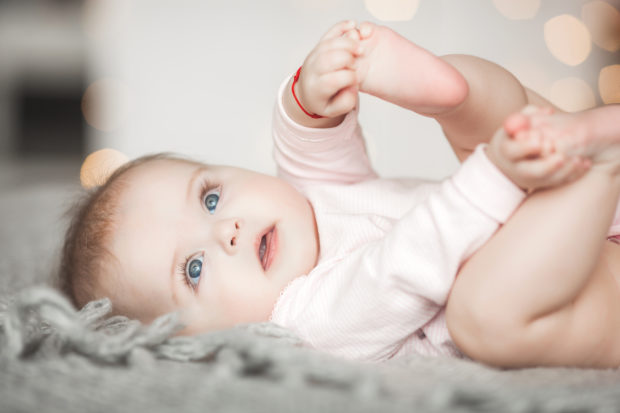New Research Finds Infants Are Less Likely To Contract COVID-19 From Infected Mothers And Experience Less Severe Symptoms As Opposed To Other Household Adults

Throughout the COVID-19 pandemic, it was believed that three distinct groups were the most at risk for virus-related complications: older adults over the age of sixty-five, individuals with underlying health conditions, and young children.
But, a new study conducted by researchers at the University of Washington has found that infants whose mothers are infected with COVID-19 actually often develop symptoms that are less severe than their parents– and that is if the infants even become infected at all.
This research represents one of the first studies to specifically analyze how COVID-19 impacts older infants.
“The focus on infants early in the pandemic was about possible transmission risks during pregnancy, birth, or through nursing, but there were other questions about the risks in the household to infants and other children when caregivers are sick,” explained Melanie Martin, the study’s first author.
So, Martin and her team asked themselves– how severely are infants at risk for infection, and how can caregivers protect children when they are sick?
The study included forty-six pairs of mothers who tested positive for COVID-19 and their infants.
The researchers combed through surveys and analyzed the antibody results of each pair for two months after the mothers were infected with the virus.
Each infant was at least one month old, and the COVID-positive mothers were immediately enrolled in the study within mere days or hours of receiving their positive infection results.
The team also studied a comparative group of eleven mothers who tested positive for COVID-19, as well as a control group consisting of twenty-six mothers who had no known exposure to COVID-19 or virus symptoms.

olenachukhil – stock.adobe.com – illustrative purposes only, not the actual person
The researchers ultimately found that approximately half of the infants with COVID-infected mothers developed antibodies or symptoms that indicated virus infection. The infection rates and symptoms among those infants were comparable to other household children but lower than other household adults.
The age of infants and a mother’s viral symptoms were also not associated with the risk of COVID-19 infection among infants who had COVID-positive mothers.
However, families that had a higher number of COVID-positive family members were more likely to have an infant who tested positive for the virus. In turn, Martin concluded that infant COVID-19 risk is much more dependent upon household infection rather than maternal COVID-positive status.
“Infant infection was mostly related to household infection. The risks to infants were not stemming solely from their mothers; there was just transmission in the household,” she underscored.
The study did have limitations– including overall sample size, self-reported symptoms, and self-administered blood sample collection. It is also virtually impossible to assess some COVID-19 symptoms among infants– including headache, loss of taste or smell– so the researchers added that parental perception and reports could have varied.
Still, the findings indicate that infants exposed to COVID-19 experience low risks, and caregivers should not change their routines should they test positive for the virus.
“Overall, the risks to COVID-19 exposed infants in this study were minimal. The findings support recommendations for infected mothers and other caregivers to continue infant care and feeding as usual, including nursing,” Martin concluded.
To read the study’s complete findings, which have since been published in Frontiers in Immunology, visit the link here.
If true crime defines your free time, this is for you: join Chip Chick’s True Crime Tribe
Last Year, She Was Last Seen Walking Around Her Tiny Town, But Then She Disappeared
Sign up for Chip Chick’s newsletter and get stories like this delivered to your inbox.
More About:Science





